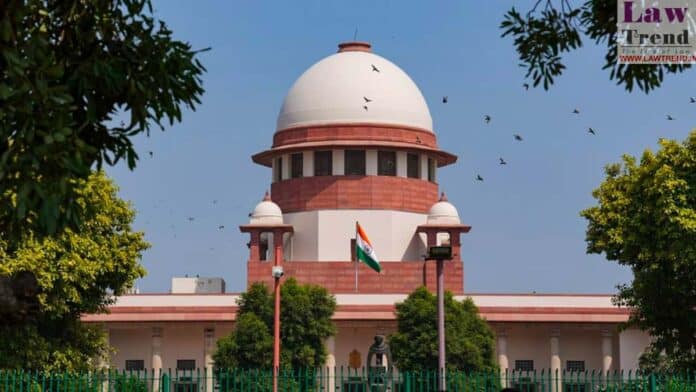The Supreme Court on Friday directed the Delhi government to contribute Rs 500 crore from the Environment Compensation Charge (ECC) fund to the Regional Rapid Transit System (RRTS) corridor being constructed linking Delhi to Meerut within 10 days.
The semi-high speed rail corridor will connect Delhi with Meerut and the estimated cost of the 82.15-km stretch is Rs 31,632 crore. The corridor, with 24 stations, will cover the distance from Sarai Kale Khan in Delhi to Modipuram, Meerut in 60 minutes.
A bench of Justices S K Kaul and A Amanullah asked the Centre’s counsel to obtain instructions with regard to Delhi-Alwar RRTS corridor after the apex court was informed that approval of the central government is awaited.
The bench also asked the counsel appearing for the Delhi government to take instructions regarding sanction for the Delhi-Panipat RRTS corridor.
Senior advocate Aparajita Singh, who is assisting the court as an amicus curiae in a pollution related matter in which the issue about RRTS has cropped up, told the bench the Centre’s approval is awaited for the Delhi-Alwar corridor, while the Delhi government’s sanction for the Delhi-Panipat corridor is also awaited.
Singh told the bench the Delhi government has moved an application for grant of Rs 500 crore from the ECC fund, in which around Rs 1,100 was lying, for the Delhi-Meerut RRTS corridor.
She referred to the March 6, 2019 order of the apex court which had directed the Delhi government to contribute Rs 265 crore, which included the tax liability, from the ECC fund within 10 days for the Delhi-Meerut RRTS corridor.
The amicus contended the top court had earlier said the ECC has to be used for developing the infrastructure of Delhi to reduce pollution and the application for grant of Rs 500 crore from the ECC fund should be allowed as the project will help reduce the inflow of vehicles coming to the national capital.
Senior advocate A N S Nadkarni, appearing for the national capital region transport corporation (NCRTC), which is handling the project, said the Delhi-Meerut RRTS corridor is scheduled to be completed in 2025 and the apex court had noted in its March 2019 order that the contribution of the Delhi government towards it stands at Rs 1,138 crore.
In its March 2019 order, the apex court had noted the contribution of the Government of India for the Delhi-Meerut RRTS corridor project is Rs 5,687 crore, that of Uttar Pradesh Rs 5,828 crore and the National Capital Region of Delhi Rs 1,138 crore.
The bench noted in its order passed on Monday that the amicus, while referring to the March 2019 order, has no objection to release of Rs 500 crore on the same terms and conditions as set out in the 2019 order.
“We accordingly direct the Delhi government to contribute Rs 500 crore from ECC funds within 10 days,” the bench said.
The top court also took note of the submission of the NCRTC’s counsel that the Delhi government will be required to contribute another around Rs 400 crore towards the corridor and make budgetary allocation for it.
The bench called upon the Delhi government to make requisite budgetary allocation, if not already made, so the project is not stalled.
The bench has posted the issues concerning the Delhi-Alwar and Delhi-Panipat corridor for further hearing in July.
In its March 2019 order, the apex court had directed the Delhi Government to contribute Rs 265 crore, which included tax liability, from the ECC fund within 10 days. It had said the tax component was refundable and shall on refund be credited to the ECC fund.
Of the 82.15 km-long corridor, Delhi will have around 13 km with stations at Sarai Kale Khan, New Ashok Nagar and Anand Vihar.




